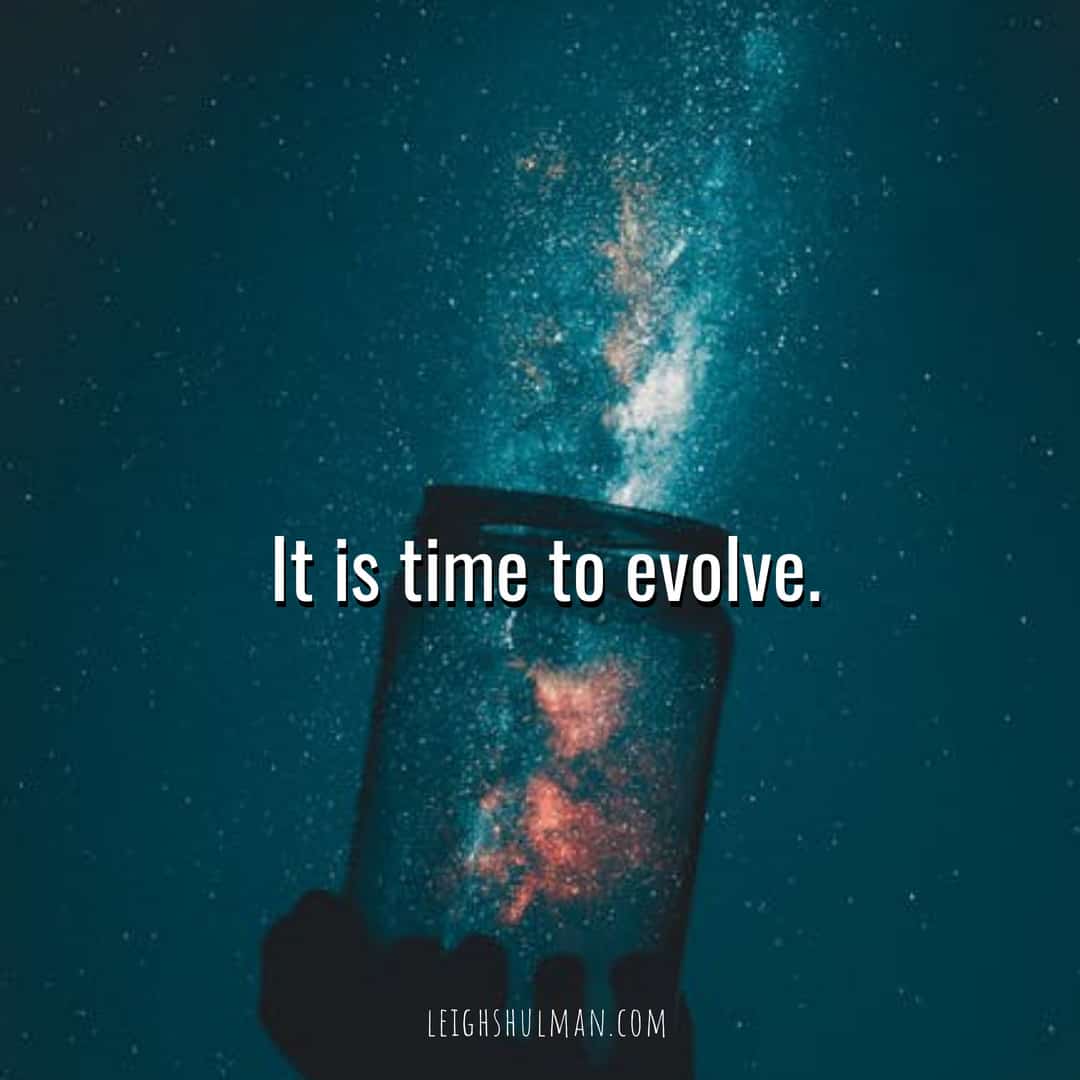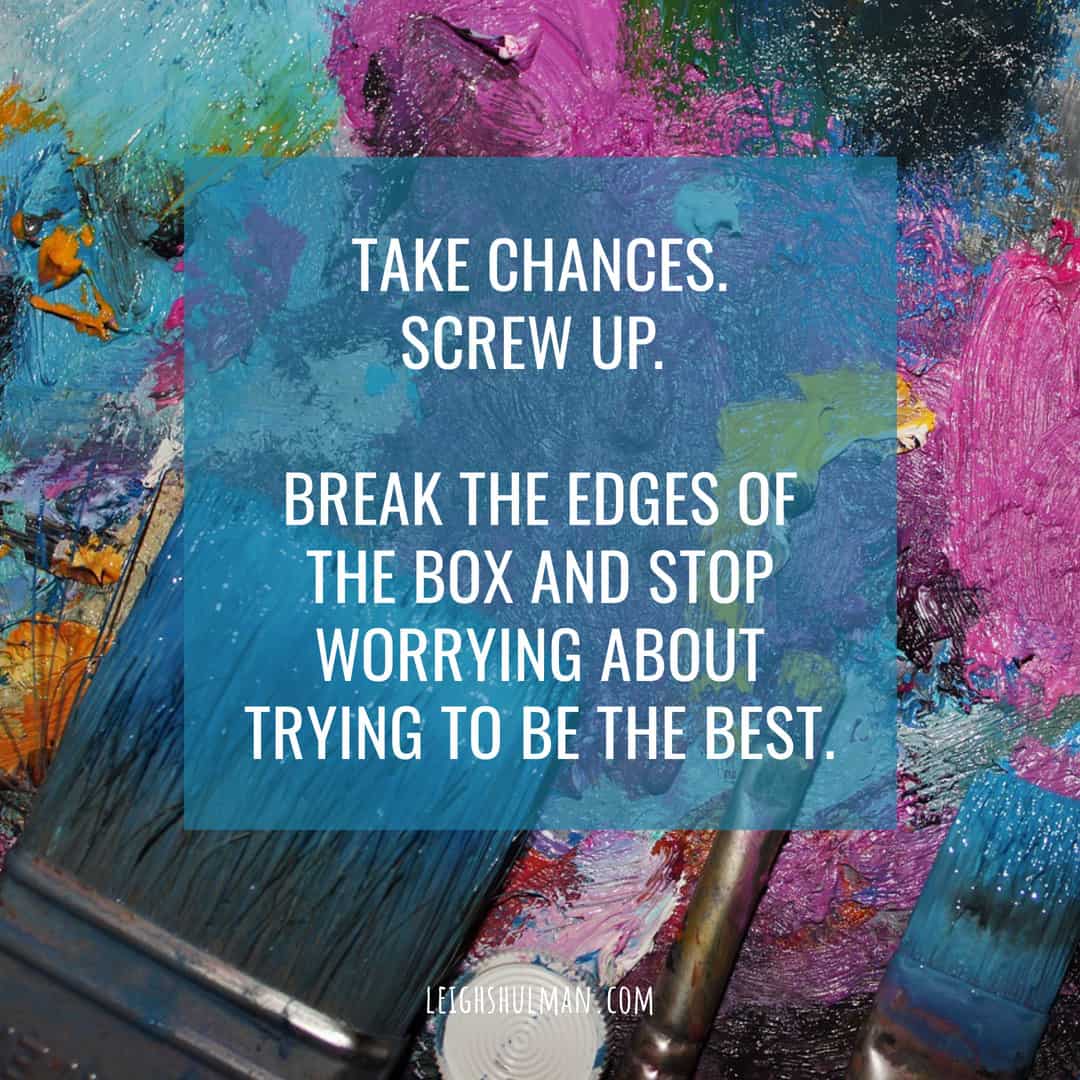Do you know why the fear of failure overwhelms so many of us? It’s because we’re taught from a young age to avoid making mistakes.
The school system is a major offender of making us fear our mistakes. School too often offers an incredibly misguided lesson as it teaches us to evaluate each of our mistakes. In some classes, like math, grading is pretty straightforward, and the grading scale can be easily broken down into percentages. Other classes such as writing and art aren’t so easily broken down into percentages.
This kind of grading system too often makes us think we’ve failed when we haven’t at all.
Making mistakes is a necessary part of learning.
We learn from failure and royally screwing up in ways we never learn from success. Penicillin, x-rays, and even chocolate chip cookies exist only because someone made a mistake.
It’s possible to turn what seems like failure into success if you know how to manage your mistakes. The guy who almost threw away a batch of dough filled with chocolate that fell off a shelf took a risk by baking them anyway just to see what would happen.
But scaled learning obscures us from this ability.
In school, you can get 100% on a test. Failure is below 60%. In the real world, it’s almost unheard of to reach your goals that often. In pitching, if you’re receiving 20% yeses on your pitches, you’re doing very well. 50% rarely happens. And 100% only happens when you’re lying.
School asks us to strive for perfection, but perfection doesn’t exist in the real world. When we aim for 100% in real life, we miss the point of learning entirely. Because learning is about improvement, growth, and innovation. Does our writing reach more people? Does our art inspire? Does the science we invent serve the world?
In school, teachers rarely give second chances. You take a test. You get your grade. Sometimes, you’re allowed the option of extra credit which then factors into your grade. And students usually have very little say in their own education.
In the real world, you don’t receive grades, you receive feedback. In the form of money, confidence, or some other form of currency that has nothing to do with the way grades work. It’s not on a scale, and it’s not always fair. We may deserve a raise or a commission but someone else gets it because they got there first or know the right people or some other reason we may never know.
If you believe what you receive from someone else who happens to be in a position to make choices for your life is always a true reflection of who you are, then you’ve ceded your power to another. It weighs you down, so you can’t move forward. If you’ve been in this position, then you know what I mean. I’ve certainly been there.
The way we measure results in our work and writing makes no sense according to grades.
Unfortunately, we spend so many years of our early years being measured by a school-formed version of success. It’s an outdated method that comes from the industrial revolution, and it kills creativity. This form of education sorts and sections people according to graded intelligence and whether or not they’re ready for a factory job, a desk job, or a management job.
While it may have worked during the industrial age, applying education and the type of work people did then to how we work now defies logic. Would you wear the same clothes, use the same currency, or travel now as people did then? Of course not.
It’s time to evolve.
I spent years of my life trying to measure up. I was a good student. I worked hard in school and mostly got A’s. I didn’t even have to work that hard to make it happen. Until college, when suddenly nothing I did reached the goals I set for myself. I’d get B+’s. No better than 89%. I felt like a failure.
I felt like I’d never measure up. Those feelings impacted my writing, too. I was only 18 and already trained to follow what my teachers wanted. But I noticed, the times I let myself free to follow my own course, my writing received the best feedback. Unfortunately, I didn’t yet know how to receive feedback. An A meant good. A good word meant yes. They were the breadcrumbs to my next step. I was lucky. I had excellent teachers and mentors. People who valued my words and worked with me to find my own way.
But perfection is a tenacious habit and one not easily relinquished. I thought I was meant to be a literary writer and wrote according to what I thought was meant to be literary. I didn’t even realize I didn’t enjoy it.
It wasn’t until I wrote my book The Writer’s Roadmap that I gave myself permission to write other genres.
And it wasn’t until I started writing sci-fi for my daughter Lila that I fell in love with writing again. I wrote the kind of scenes I loved to read and I would see the excitement on her face when I shared details with her. It made me want to write more. In spite of wrestling with structure, scene, pacing, and all the rest, I am having fun and feel free.
This is how it should be. Even when it’s hard. Even when you have shitty first draft days. Even knowing there will be times you’ll want to give up.
The danger and damage of giving our power to others.
When we walk through the world measuring and evaluating ourselves in ways that tear ourselves down, we will always fail. It stops us from learning and growing even when we do well because the scale originates from outside of ourselves. When we measure ourselves from the outside, it’s impossible to learn from mistakes.
And if we’re not able to learn from our mistakes, then they’re simply ways we’ve failed with no recourse for improvement. This kind of failure leads to shame and embarrassment. Shame is no way to move forward. It leaves us scared and frozen.
We then modify our behavior to avoid mistakes. Which means taking fewer chances. It also means changing our behavior in order to meet the needs of someone else. When you place the locus for control outside of yourself, you make it impossible to make clear choices or be creative, because you’re imagining what others want and trying to meet someone else’s needs, instead of relying on your own ingenuity and strength to create what you want.
There’s a better way.
It begins when you believe in yourself first and decide what you want.
Then do what you must do to reach your objective. Take chances. Screw up. Let yourself break the edges of the box and stop worrying about trying to be the best.
Most of all seek feedback. It’s impossible to work entirely on your own and feedback gives you the sight you can’t see on your own.
How you respond to feedback makes all the difference, too. If you allow what someone says about a piece of your work to be a reflection of who you are and what you can accomplish, then you’ve once again limited yourself by another person’s yardstick.
When you believe in yourself, you learn that there’s a better way to respond to feedback. Even when feedback is painful.
This doesn’t mean all feedback is wrong. It means feedback is a tool to help you grow. Can you do better? Can you see differently? Feedback will let you know.
A few years ago, I took Seth Godin’s altMBA course. During a group session, one woman named Nadia told me that the way I run my writing business didn’t seem like a business at all, that I was more like a freelancer trying to make myself look bigger. It was a huge gut punch, and I left the session angry and ranting.
But Nadia was right, and her observation upset me precisely because I knew what she said was true. I didn’t have clear strategies. I didn’t know my market. I didn’t have a team. I didn’t have processes. Instead, I ran from project to project and felt harried and tired. Once I was able to get past my own ego, I could look at my mistakes head-on and begin to address them.
I took Nadia’s feedback and reworked the way I run my writing. I incorporated new systems, hired a team and began to view each action I take strategically. There was a learning curve, to be sure, but I shifted the way I until I ran my writing like a business.
When you receive criticism, stop thinking by the old scale. Instead, evaluate it and use it as a method to improve. Even if the feedback you receive comes in ugly clothing, go to the core of the message and assess it by your standard.
Does it make sense? Will it improve you? Can you develop your work and self from where it is and make it better? If so, then you have received a gift. Even if the gift comes in a form that hurts, the core is gold. Throw away what you don’t need and keep what’s of worth.
If feedback has no value to you, then move on. Simple as that.
Risk making mistakes being foolish.
Always seek to understand more, create more, and stretch the boundaries of where you are now. And the only way to do so is risk failure. Risk mistakes. Risk being thought a fool and crashing. Risk disapproval from others and do what you know is right for you.
Evolution takes time. It’s hard to know your instinct when you’ve been distracted from it for so long. It’s not a comfortable route. It’s certainly not safe or easy. But it does lead to a purpose that won’t be measured by numbers.
And that’s where the magic begins.



